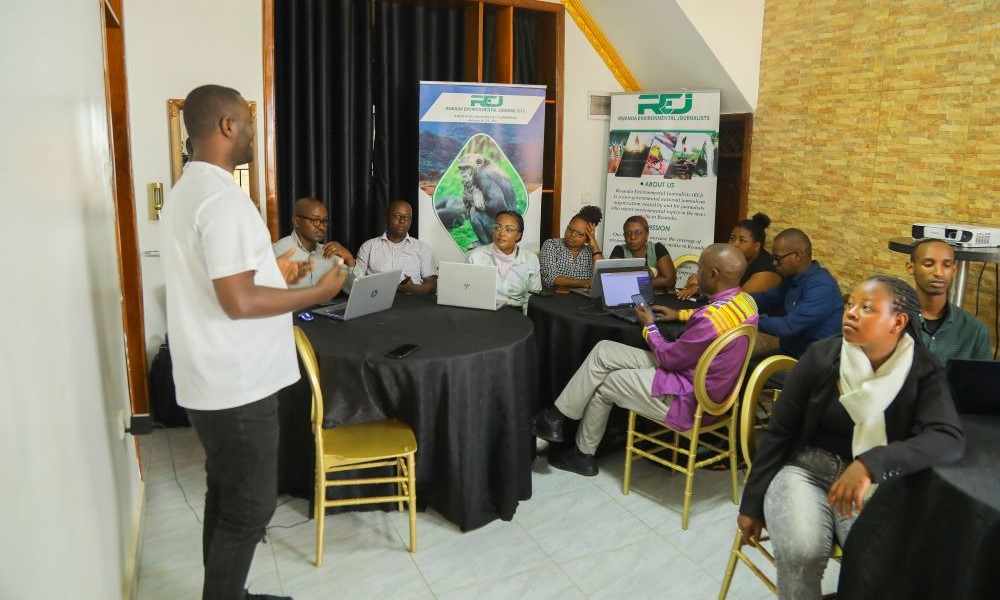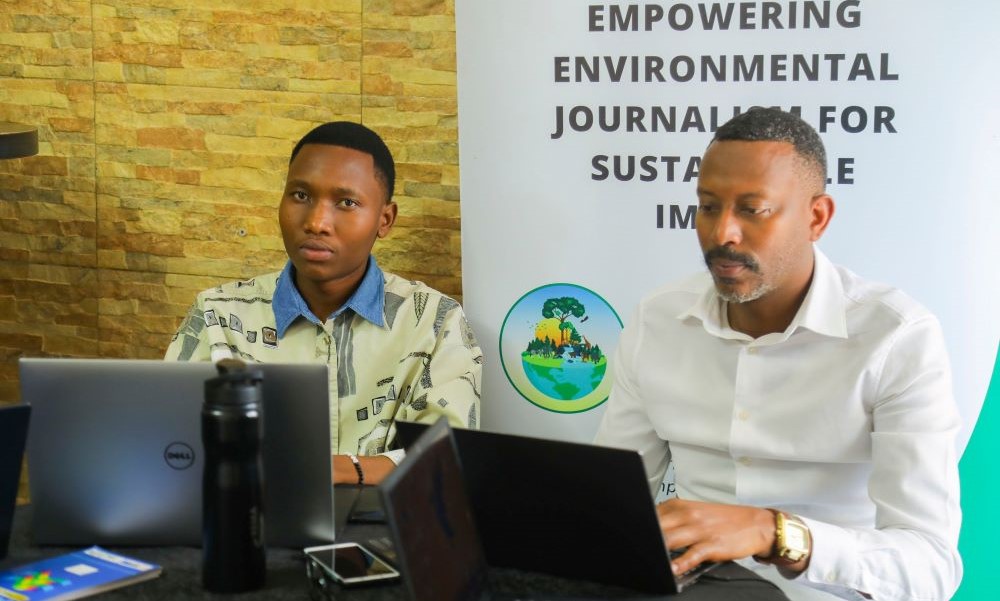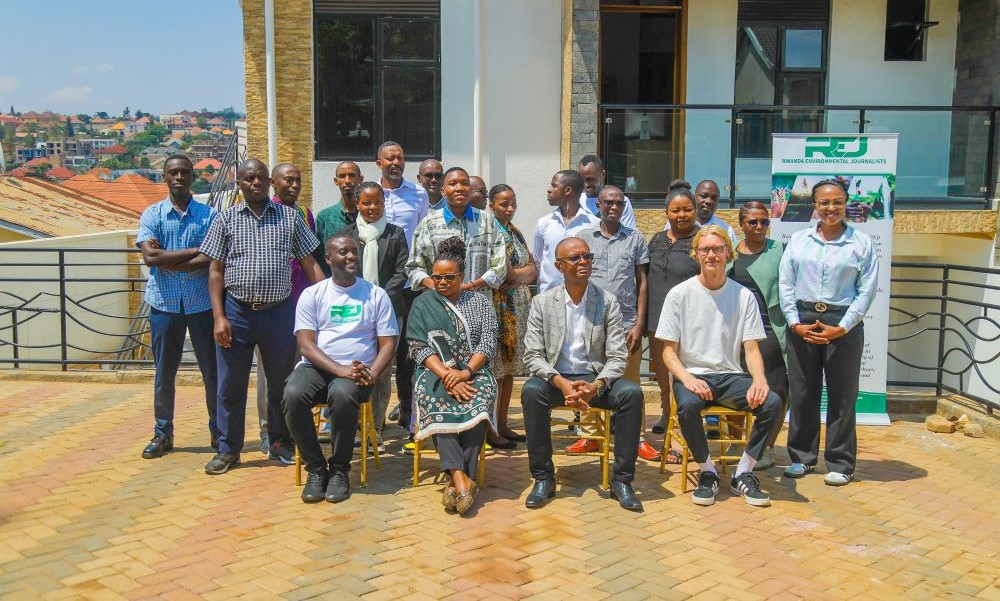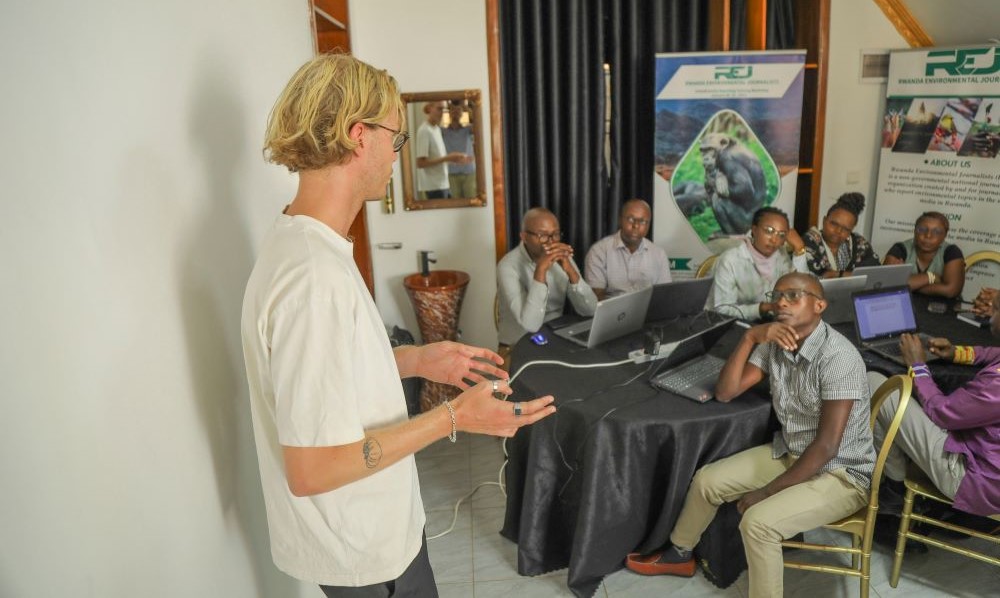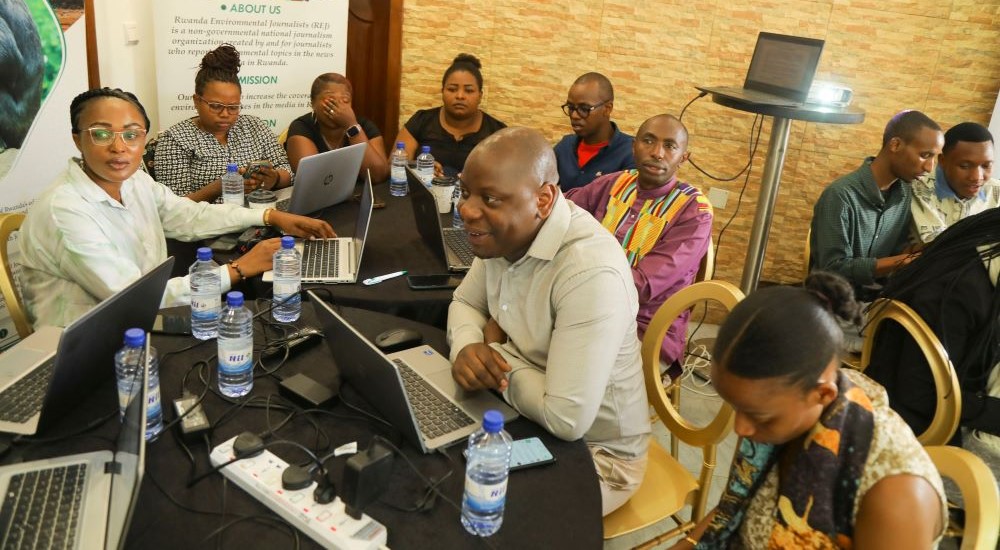A new training initiative in Kigali is equipping Rwandan journalists with advanced skills to tackle the most pressing challenges of telling stories about the environment with depth, accuracy, and scientific grounding.
Organized by the Rwanda Environmental Journalists (REJ) in partnership with FOJO Media Institute, the workshop on Science and Data-Driven Environmental Reporting opened on Monday September 29, 2025, with a strong call for professionalism, collaboration, and innovation in the media sector.
The training seeks to empower participants with practical tools in data analysis, ethical sourcing, and science-based storytelling. The aim is to ensure that environmental issues are not treated as isolated incidents, but reported as interconnected realities shaping public health, economic growth, and the country’s sustainability goals.
Speaking on behalf of the Rwanda Governance Board (RGB), Peacemaker Mbungiramihigo, Head of media policy, underscored the essential role of journalists in shaping how the public perceives and responds to environmental issues.
He commended REJ and FOJO for spearheading the initiative at a time when climate change, biodiversity loss, and environmental degradation dominate global concerns.
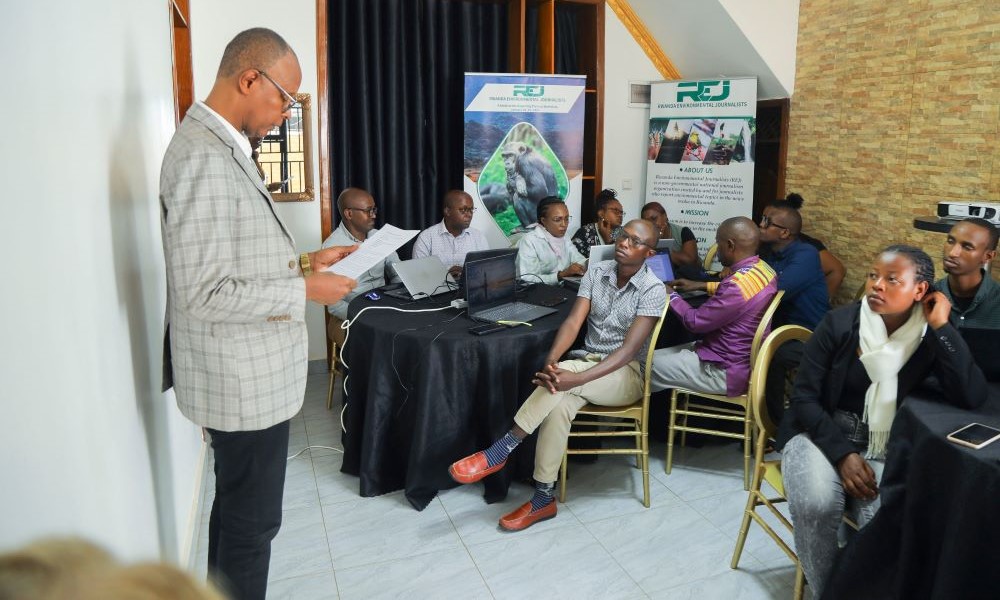
“Your efforts to strengthen the role of the media in advancing environmental awareness and sustainability are both timely and commendable. The media plays an essential role in shaping public discourse and influencing behavior. In today’s world, the need for informed, science-based and data-driven journalism has never been more urgent,” Mbungiramihigo said.
He stressed that a well-trained and responsible media sector can act as a bridge between science, policy, and the public, ensuring that complex data is translated into clear and impactful narratives.
“When journalists can communicate environmental data in ways that are accessible, they contribute to both civic awareness and evidence-based decision-making. This is a powerful contribution to our nation’s development,” he added.
The training aligns with Rwanda’s green growth and climate resilience strategy, which places environmental sustainability at the heart of national development. By building capacity among journalists, RGB hopes to foster a media sector that not only informs but also inspires accountability and long-term change.
Jonas Nyman, the International Program Coordinator at FOJO media institute, provided a global perspective on the value of data in investigative environmental reporting.
He highlighted examples from Oxpeckers, a specialized unit in Southern Africa that has exposed illegal mining and organized poaching using advanced data journalism techniques.
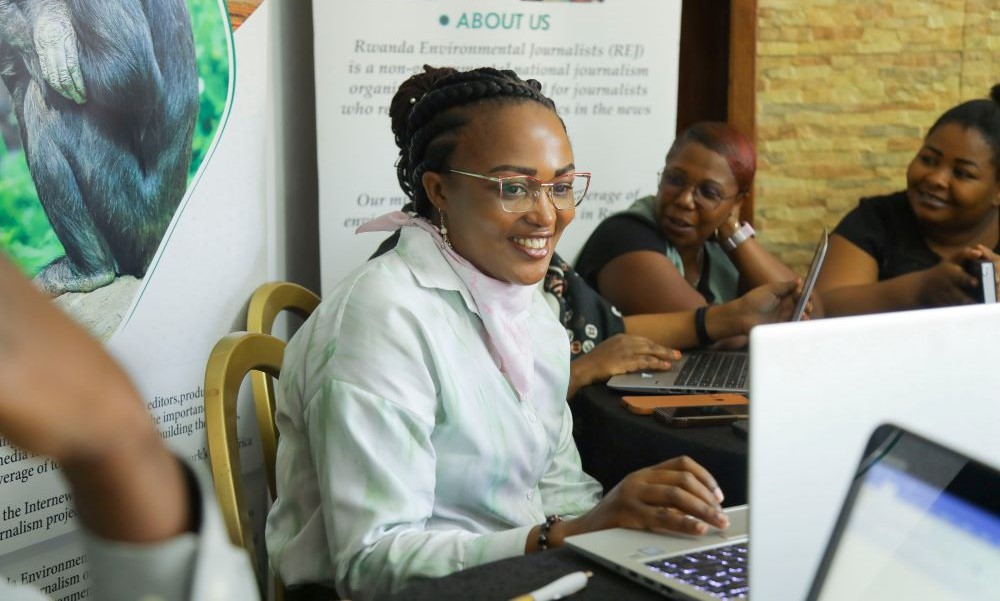
“Available examples show that data is imperative if you really want to expose the real issues. Beneath the numbers lies the evidence needed to uncover environmental hazards and wrongdoings by companies, individuals, or even organized groups,” Nyman observed.
He explained how data-driven reporting can help track wildlife movements through digital chips, exposing patterns that reveal poaching networks. For mining, Nyman pointed to the use of statistical and heat maps, which can show unregistered activity even in areas where no legal mines are recorded.
The training began with lively exchanges among participants, reflecting a strong appetite for knowledge and collaboration. Journalists, students, and media practitioners engaged in interactive sessions on sourcing credible data, applying ethical standards, and using innovative digital tools for environmental storytelling.
Participants were urged to embrace curiosity and openness, emphasizing that their role extends beyond routine reporting.
The initiative is expected to leave a lasting mark on Rwanda’s media landscape by equipping journalists with the capacity to scrutinize environmental policies, expose harmful practices, and contribute to sustainable governance.
